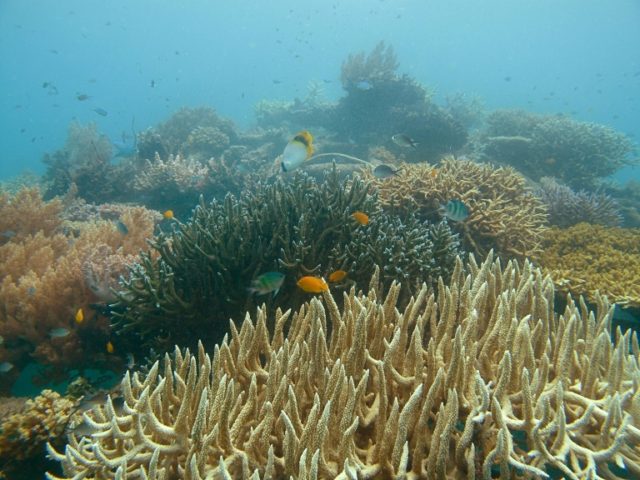This morning’s key headlines from GenerationalDynamics.com
- Japan finds ‘semi-infinite supply’ of rare earth minerals in its territorial waters
- Japan’s rare earths discovery represents a defeat for China
Japan finds ‘semi-infinite supply’ of rare earth minerals in its territorial waters

Researchers have found rare earth minerals just 2-4 meters below the seabed, at a depth of almost four miles. (Telegraph)
In January 2013, a deep-sea research vessel from Japan obtained seven samples of mud collected two to four meters below the seafloor at 5,600 to 5,800 meters in depth, near Japan’s Minami-Tori-shima Island, also known as Marcus Island, within Japan’s exclusive economic zone (EEZ).
Analyzing the mud revealed that it contained extreme concentrations of rare earth minerals. Continued research since then has led to an announcement that the region contains more than 16 million tons of rare earth minerals. These elements are needed to build high-tech products ranging from mobile phones to electric vehicles.
This find is being described as a “semi-infinity” supply of rare earth minerals, enough to supply all of Japan’s needs for well over a century. However, getting at the resources will be an issue, since they’re almost four miles underwater. Japan Times and Fortune and Nikkei Asian Review
Japan’s rare earths discovery represents a defeat for China
China’s theft of intellectual property from other nations is a subject much in the news these days, and China’s near-monopoly on rare earth minerals has been a mechanism for exactly that kind of theft.
As I have said frequently in the past, people who say “there won’t be a war because it’s bad for business” are wrong. In fact, the opposite is true, since trade becomes just another weapon of war.
In 2009, there was a brief clash between China and Japan in the East China Sea, and China decided to punish Japan and get revenge by ending shipments to Japan of rare earth minerals. This was a significant blow for Japanese manufacturing, since Japan needed these minerals for the manufacture of their high tech products, and Japan was dependent on being supplied by China.
This became a major foreign policy for China.
As Yasuhiro Kato from Tokyo University has pointed out, “Their real intention is to force foreign companies to locate plant in China. They’re saying `if you want our rare earth metals, you must build your factory here, and we can then steal your technology.”
In 2012, China stepped up the revenge against Japan. The Beijing government encouraged the Chinese people to demonstrate and protest against Japanese businesses in China. The government urged protesters not to use violence, but that part of the message was clearly ignored, as protesters torched a Panasonic factory and Toyota dealership, looted and ransacked Japanese department stores and supermarkets in several cities.
It became clear to the Japanese that they would need to find an alternate supply of rare earth minerals, and that is what motivated the deep-sea research project that made the initial discovery in 2013, leading to the “semi-infinite” supply of rare earths announced this week.
The new supply of rare earths has to be described as a defeat for China, because once Japan is successful in mining this new supply, China will be unable to use rare earths as a weapon of war. The Diplomat (29-Aug-2017) and Telegraph (London, 24-Mar-2013)
Related Articles
- China halting ‘rare earth mineral’ exports (20-Oct-2010)
- Rare earth minerals controversy creates new alliances (28-Oct-2010)
- Rare earths controversy polarizes China’s relations (27-Oct-2010)
- China and Japan continue to prepare for war over Senkaku/Diaoyu islands (29-Oct-2012)
KEYS: Generational Dynamics, Japan, China, rare earth minerals, Minami-Tori-shima Island, Marcus Island
Permanent web link to this article
Receive daily World View columns by e-mail

COMMENTS
Please let us know if you're having issues with commenting.